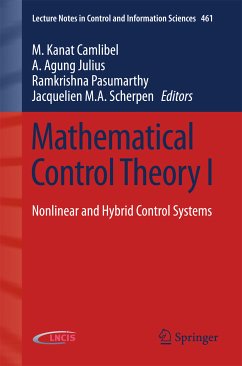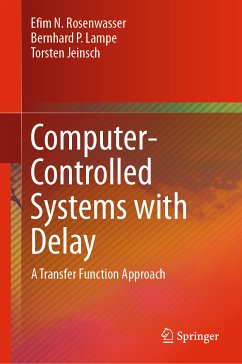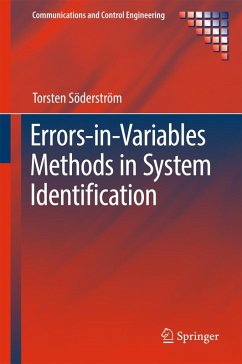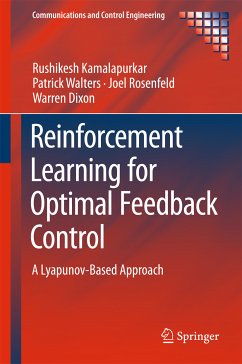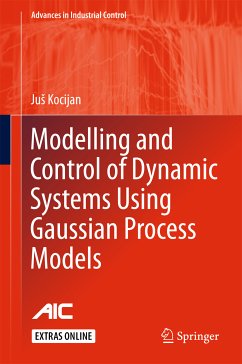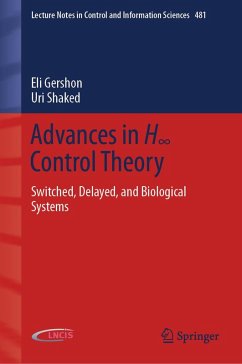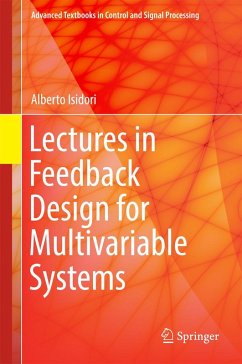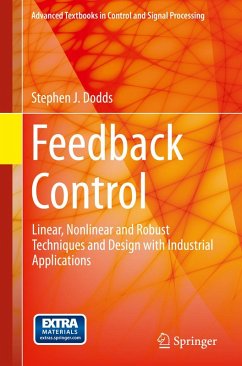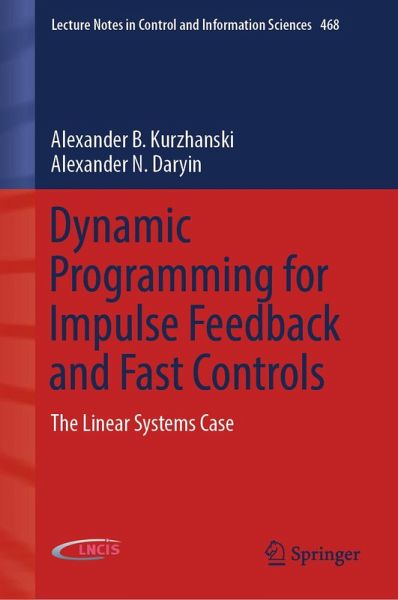
Dynamic Programming for Impulse Feedback and Fast Controls (eBook, PDF)
The Linear Systems Case
Versandkostenfrei!
Sofort per Download lieferbar
112,95 €
inkl. MwSt.
Weitere Ausgaben:

PAYBACK Punkte
56 °P sammeln!
Dynamic Programming for Impulse Feedback and Fast Controls offers a description of feedback control in the class of impulsive inputs. This book deals with the problem of closed-loop impulse control based on generalization of dynamic programming techniques in the form of variational inequalities of the Hamilton-Jacobi-Bellman type. It provides exercises and examples in relation to software, such as techniques for regularization of ill-posed problems. It also gives an introduction to applications such as hybrid dynamics, control in arbitrary small time, and discontinuous trajectories.This book w...
Dynamic Programming for Impulse Feedback and Fast Controls offers a description of feedback control in the class of impulsive inputs. This book deals with the problem of closed-loop impulse control based on generalization of dynamic programming techniques in the form of variational inequalities of the Hamilton-Jacobi-Bellman type. It provides exercises and examples in relation to software, such as techniques for regularization of ill-posed problems. It also gives an introduction to applications such as hybrid dynamics, control in arbitrary small time, and discontinuous trajectories.
This book walks the readers through:
Of interest to both academics and graduate students in the field of control theory and applications, the book also protects users from common errors , such as inappropriate solution attempts, by indicating Hamiltonian techniques for hybrid systems with resets.
This book walks the readers through:
- the design and description of feedback solutions for impulse controls;
- the explanation of impulses of higher order that are derivatives of delta functions;
- the description of their physically realizable approximations - the fast controls and their approximations;
- the treatment of uncertaintyin impulse control and the applications of impulse feedback.
Of interest to both academics and graduate students in the field of control theory and applications, the book also protects users from common errors , such as inappropriate solution attempts, by indicating Hamiltonian techniques for hybrid systems with resets.
Dieser Download kann aus rechtlichen Gründen nur mit Rechnungsadresse in A, B, BG, CY, CZ, D, DK, EW, E, FIN, F, GR, HR, H, IRL, I, LT, L, LR, M, NL, PL, P, R, S, SLO, SK ausgeliefert werden.



